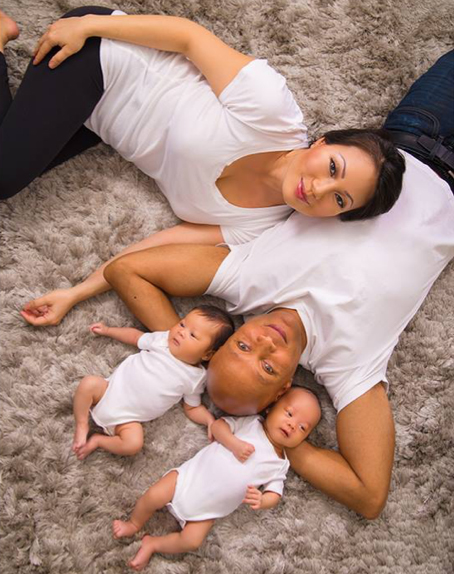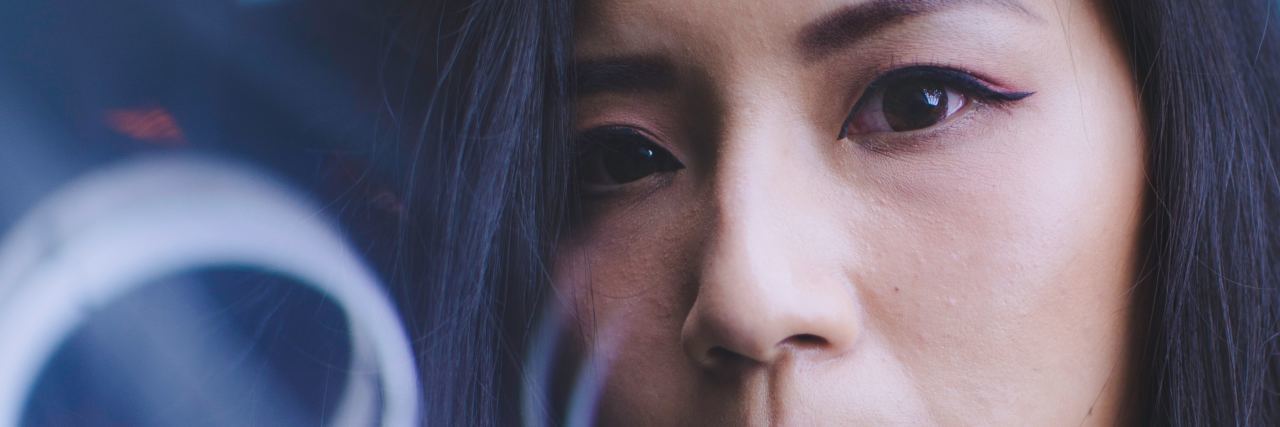Having Postpartum OCD as an OCD Specialist
Editor's Note
If you struggle with obsessive-compulsive disorder (OCD), the following post could be potentially triggering. You can contact the Crisis Text Line by texting “START” to 741-741. To find help, visit the International OCD Foundation’s website.
My boys just turned 1 last month. As I reminisce over the past year, I’m reminded of the challenges of the initial days, weeks, even months after my loves were born. Although the experience of having newborn twins and motherhood, in general, was unbelievable, it was still manageable. Juggling multiple tasks under very little sleep was not new to me. What wasn’t manageable was the unexpected return of my obsessive-compulsive disorder (OCD).
Having battled obsessive-compulsive disorder since the age of 4, finally triumphing over it in my 20s and later becoming a specialist in treating the most severe cases of OCD, I was shocked at the devastating effect OCD had on me once again. Not only was I overly arrogant that I had defeated OCD for good; the thought of experiencing OCD postpartum never even crossed my mind. Surely, I have treated many women experiencing postpartum OCD. And like most people who have overcome OCD, I’ve had minor intrusive thoughts here and there that were now easily ignored. However, being deeply trapped in intrusive thoughts of potential harm to my loved ones, along with silly magical compulsions to ensure their safety, was a thing of the past… or so I thought. I was wrong.
Within the first week, after my boys were born, OCD reared its ugly head once again. It was clever as ever, disguising itself in nebulous form. Though I realized later that it still presented itself in the OCD category of potential harm to others, the intrusive thoughts were more creative and obscure. Even I, the OCD specialist, could not see it. My OCD had become even trickier than I ever remembered.
My fear was that I would love one twin more than the other, and in some weird OCD way, would cause harm to their emotional development. To neutralize this intrusive obsession, I made myself “crazy” by ensuring that everything I did for one of the boys was exactly the same as the other. From something as mundane as how each bottle gets scrubbed to the more complicated measurement of skin-to-skin contact, OCD dug its claws into just about every facet of motherhood. Breastfeeding became the most taxing task. How does one even quantify how much milk exactly each infant got? Was there a specific mathematical formula? Length of time x rate of sucking x milk production x time of day = you get the idea of the ridiculousness of OCD.
To make matters even more exhausting, I spent each night checking my memory bank for the number of times I thought of each twin, comparing the content and emotional context of each thought. All of this was in vain, just to say I loved them equally. I drove myself “insane.” Or, put more correctly, OCD drove me insane. Did I have the common postpartum OCD symptoms of excessively hand-washing, sanitizing baby bottles and checking for the babies’ safety? Yes, I had those too. The skin on my hands was once again chapped, cracked and raw. Clean bottles couldn’t touch anything unsanitized. And I had to touch my babies’ chests to make sure I felt them rise and fall. Seeing they were breathing while asleep wasn’t enough. This was how I spent the first few months of motherhood; bliss turned into torment.
Unfortunately, there is little information on postpartum OCD or its symptoms, especially within the medical community where a postnatal woman would be screened. Women are regularly screened for and educated about postpartum depression at prenatal and postnatal visits. However, research indicates as many as 10 to 50 percent of new mothers actually experience postpartum OCD, which is often misdiagnosed as postpartum depression. Symptoms tend to be intense, appear out of the blue, and are similar to those in others with OCD. Sadly, many mothers often struggle alone for fear of disclosing the offensive nature of their symptoms and receiving negative judgment from others. Some women have even been involuntarily hospitalized by doctors with a lack of awareness of postpartum OCD. Fortunately, as with other types of OCD, postpartum OCD is very treatable with exposure and response prevention therapy (ERP).
My own ERP was just as torturous as the ones I prescribe to my patients. I had to visualize and imagine the unbearable possibility of harm befalling my sweet, innocent babies. I had to live with the uncertainty of not knowing what might happen to them one day. I had to accept the reality they could die before I do. These thoughts would be hard to swallow for any parent. For those of us with OCD, we must repeat these exposures until the painful thoughts lose their power. That is the only way I’ve found to be free from the chains of OCD, so motherhood can be bliss without OCD’s torment.

Although exposing yourself to your worst fears is a daunting task, living with the agonizing thoughts of OCD is much, much worse. At least exposures are short-term with long-term relief. Having to live with OCD without proper treatment is lifelong — one I would never be willing to tolerate. I chose to be free from OCD, so I could bond authentically with my boys without OCD’s interference. As I now reflect back on those early days with postpartum OCD, the arduous exposures have been worth every tear and heartbreak.
A version of this article originally appeared on the author’s website.
Lead photo by Andrew Haimerl on Unsplash. Family photo via contributor.

